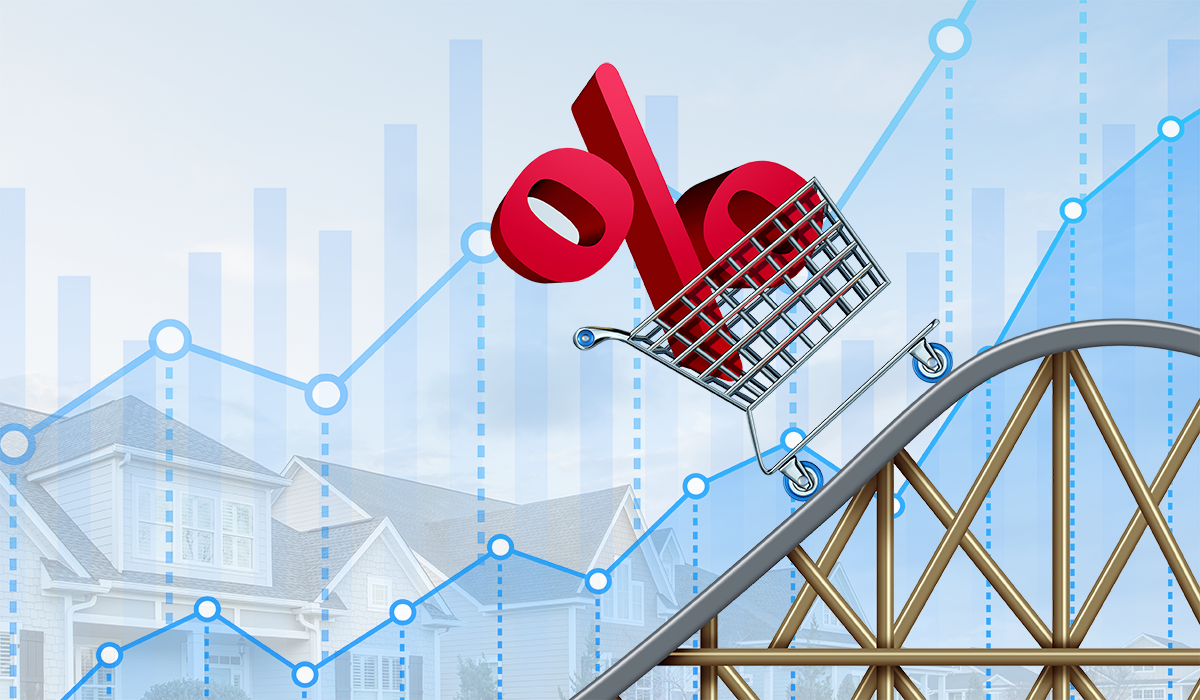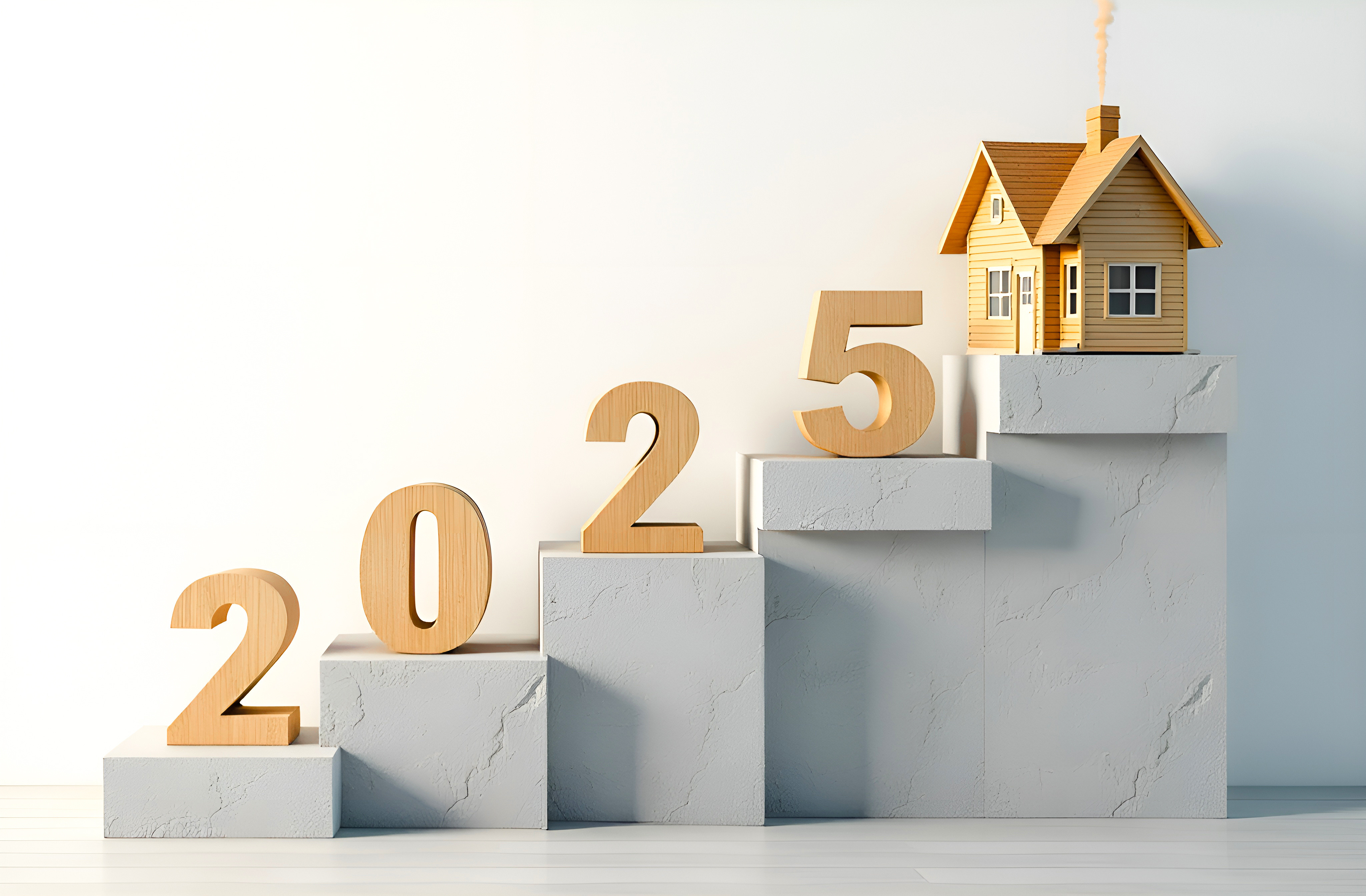Rising interest rates bring a lot of expectations, and assumptions, about how they'll impact the housing market. The biggest assumption is, "When rates go up, housing prices tumble," creating a Buyers' market overnight.
But is that what happens?
Well, no. Many factors affect the housing market at the same time. Interest rates are just one of those things. Others include a mixture of standard economic factors (like Jobs) and historical events (like a global pandemic.)
If you're convinced that higher interest rates surely impact housing, you're right. They're just not the one thing. So when interest rates rise, the effect can be subtle depending on the other factors in the market.
This article will explain how we see the rising rates impacting the housing market for buyers and sellers - and you.
What's Impacting Housing Market
Interest Rates
There's been a lot going on in the economy over the last couple of years. Most notably, the giant elephant: the Pandemic. This unprecedented global event created economic chaos, but the Federal Reserve stepped in to soften the impact as much as possible.
One deviation from the Feds' standard policy was keeping a steady flow of money to help the housing market. They did this by buying up Mortgage-Backed Securities. (Read this overview to understand their vital role in the mortgage market and interest rates.)
The Federal Reserve acts to control the impact of inflation on the U.S. market. The actions they take to do this eventually move interest rates up and down. Low interest rates are an added benefit to the housing market. They make buying a home more attractive, and buyers can flood the market searching for their piece of the American dream.
When there are a lot of buyers competing for the available homes for sale, the effect of Supply and Demand forces is obvious. Home prices increase when demand increases.
But does the opposite effect occur when rates increase? Do housing prices come down, and competition go away?
Like we said before - no, not exactly. Even rapidly increasing interest rates won't immediately result in home prices tumbling and buyers fleeing the market. And that's because of all the other factors impacting home prices and buyers.
Buyer Motivation
Historically low interest rates are only one of the factors bringing more buyers into the housing market. But there are other factors to consider, including the number of millennials currently turning 40 - approximately 10,000 a day for the next nine years, according to the Pew Research Center.
Not every Millennial is looking to buy a home. Still, many of them do want to purchase, and they have an unprecedented opportunity to find a home outside of commuting distance, thanks to the Pandemic's effect on work-from-home options. It allows Millennials and other buyers to look for homes in more affordable areas.
This influx of buyers from outside areas keeps pressure on the supply-and-demand valve. Yes, rising interest rates do eliminate a portion of those buyers. But when faced with sharply rising rental prices, higher interest rates are seen as the lesser of the two evils.
Buyers may drop down to a lower price point in homes. They may pause their house hunting while saving more to borrow less. Those are two ways to mitigate higher mortgage rates' effect on monthly payments.
Other, long-term forces are at play working to keep the supply-and-demand pressure on home prices.
Housing Shortage
According to a report by the National Association of Realtors, the U.S. has been under-building houses for almost the entire 21st century. They conclude that 2.1million homes need to be built annually for a decade to catch up to demand.
And that is not happening. For various reasons, many sourced back to the far-reaching effects of the Pandemic, home building is not on track to catch up with the backlog and increasing demand.
The shortage of new homes puts more pressure on the inventory of existing homes for sale. That's where most buyers in the market for a home are shopping. Competition led to multiple buyers making offers on the same house, which led to those homes selling for more than the seller's list price.
And home prices skyrocketed.
How will higher interest rates change this? It "might" reduce the number of buyers competing for every home. The remaining buyers might all go after the houses in the best condition in the best areas. Or, there may be buyers for most homes for sale - but less competition overall.
Any of these scenarios can result in a slowing in rising home prices. But, as you can see, the supply-and-demand imbalance will still be here while interest rates increase. So, the housing market may lose a bit of its headline-grabbing craziness, but it likely will not crash.
Don't Forget About Jobs
Historically, jobs directly impact a local housing market. In a geographic area where the available jobs are steady, but no significant growth happens, housing prices remain relatively stable.
Buyers know how much they can expect to pay for a home, and they save with an end goal in mind.
What happens when there is a significant increase in new jobs? When the demand for workers to fill new roles is greater than the local population can supply, employers look out of the area for people to fill those roles. And these new neighbors need someplace to live.
If the new jobs provide adequate income, the workers look for homes to buy and compete for available housing with long-term residents. This causes the price of houses to increase.
Another way the Pandemic has impacted the housing market, as mentioned, is the influx of work-from-home buyers. New workers moved to more affordable areas without needing a new job. Over the long term, this availability of talented workers may cause large companies to create more jobs. But what if new workers move to a more affordable area without the need for a new job?
Bottom Line
Understanding all the factors influencing the housing market on a local and national level is essential. When interest rates increase, there is an impact on the housing market, but not necessarily in the way many frustrated buyers hope for - falling home prices.
The best advice we can give our clients is to meet with their loan officer and create a personal mortgage and home buying plan. With their expert guidance, you'll understand how rising interest rates impact your plan, if at all. Remember, you're not buying an investment. You're buying a home.





.png)


